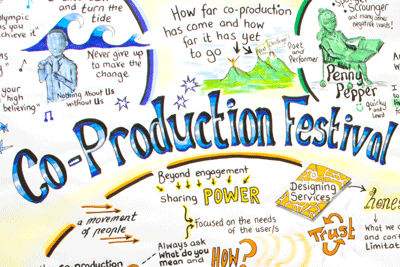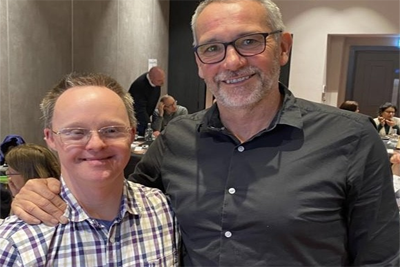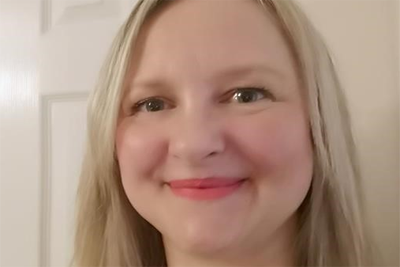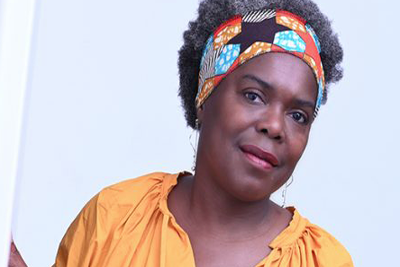05 July 2022
By Valerie Wood and Bryony Shannon
Valerie Wood is a full time unpaid carer who retired from the NHS to be a care partner for her husband, who has Motor Neurone Disease. Bryony Shannon is the Strategic Lead for Practice Development in Adults, Health and Wellbeing at Doncaster Council.
Getting started
Valerie: It just happened. It wasn’t like I knew what I was doing! I’ve been campaigning for years, and I started getting interested in the #SocialCareFuture movement on Twitter and came across Bryony’s blog about how language in health and social care can create barriers, and this really got me thinking about how I could influence change in a more ‘hands on’ way. I was already involved in the Carers Action Group in Doncaster, then Bryony asked me if I’d like to join some workshops looking at people’s experiences of access to care and support.
Bryony: When I first got this job, I didn’t really know how to get started with embedding co-production. But our approach has evolved organically through lots of connections and conversations, and it’s become really clear to me that – as with most things in social care – co-production is all about relationships.

Wait a minute!
Valerie: I come across the word co-production in an awful lot of reading material. You trust when people mention co-production that it is co-production, but then the more I found out about it, the more I learnt, I realised that the word co-production was being compromised. And then you think, wait a minute! If you’re saying you do co-production, then do it. If you’re not doing it, fine. But don’t tell me you’re doing it when you’re not.
Bryony: I remember sharing the ladder of co-production with Valerie. That’s when we realised that lots of ‘co-production’ she’d been involved in was actually consultation or engagement. Looking at the ladder of co-production together really helped.
Valerie: I also find Think Local Act Personal’s (TLAP) Ten top tips for co-production useful. I use that regularly. Often professionals tell us they want to co-produce something, then put the pressure on us to get through things quickly. If you want us to be part of things, you have to give us time.
Bryony: Co-production is about creating something together. Co. Production. And if you’re going to do co-production properly, you’ve got to acknowledge it takes time. But it’s time well spent, isn’t it? Because you’re getting things right and doing them in the right way.
Valerie: Our work on the principles met all those top tips for co-production
Co-producing our practice principles
Bryony: We’d adopted the #SocialCareFuture vision and signed up to TLAP’s Making it Real framework, but I was also keen to co-produce some local principles to underpin our practice. We drew together a small group of people with lived experience and people working in Adults, Health and Wellbeing to talk about what those principles could be.
Valerie: We started with an idea that blossomed. Bryony ensured everybody had an equal status and an equal say. I never ever felt that anybody was more important in that group. We decided how we were going to work together and how we would make a difference. Bryony supplied the background information – you can’t go into any of these workshops and be a true partner if you haven’t got the background information supplied to you, then it’s up to you whether you read it or not.
I did get confused sometimes though. The professionals were chatting away like nobody’s business and I had to keep asking if they could explain this and that. I think you do need to consider how much information is needed and not make assumptions. I didn’t know about TLAP or the Be Human Movement then. But it was good. I liked it.
I think personalised care keeps getting missed out, I really do. It’s still very much service centred, not person centred. I feel like we’re very good on paper now, we’ve got a good framework. I really do believe in it. But now it’s about making sure it gets translated into practice. That’s the really important bit.
The next step for me is for the co-production to work in practice and be meaningful for people to have the social care future they hope for, and for the framework we all co-produced.to be fully supported by an excellent implementation plan.



